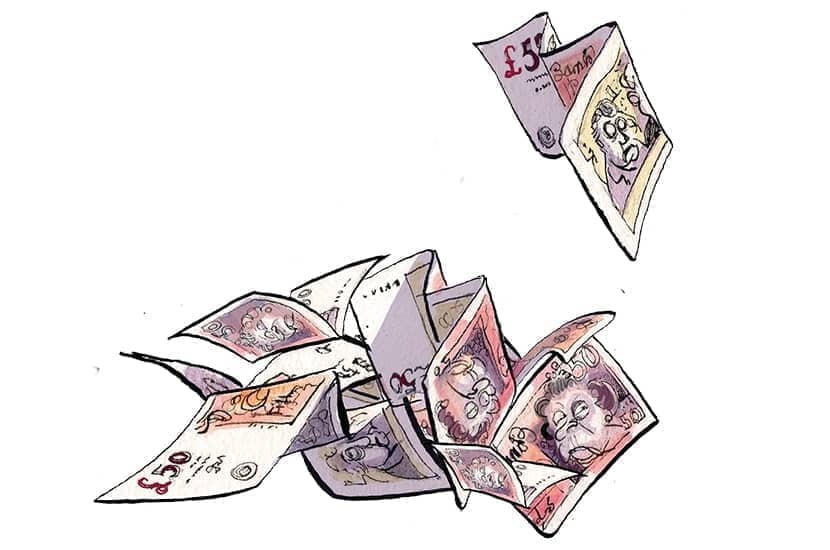In recent weeks alleged lockdown parties and suitcases full of wine have been the biggest threat to Boris Johnson’s premiership. But throughout the winter months, another threat has been brewing — one that could, in the longer term, determine the government’s fate. Britain’s cost of living crisis has been steadily worsening as price hikes for essential goods and services (food, transport) continue to outpace predictions. But the worst is still to come, with Ofgem’s announcement this morning that energy bills for the average household will be rising by nearly £700, as the energy price cap is lifted by 54 per cent come April.
Enter Rishi Sunak with an emergency package of support — a concept he’s become all too familiar with in the era of lockdowns and restrictions. To help ease financial burdens on households, the government will be working with energy companies to provide an Energy Bills Rebate — an upfront discount of £200 on bills this spring, which will be repaid by households in £40 instalments over the next five years.
The average household may be getting £350 relief on energy bills, but will be paying around £200 more to the taxman too
Those 80 per cent of households in council tax bands A to D will receive a £150 council tax rebate as well, which won’t need to be repaid. In total that’s a £350 ‘boost’ to help the majority of households with their energy bills in the coming months. A discretionary fund of £144 million will also be set up for local authorities to access, to assist households that are still struggling.
It’s a hefty support package, with an estimated price tag of over £9 billion for the rebate scheme. But already the government is facing criticism for not going far enough, with calls for the Chancellor to slash VAT on energy bills as well. It’s a policy that has been rejected on the basis that it would work primarily as a handout for wealthier households, creating a £2 billion black hole in the public finances that would have to be accounted for elsewhere (as we’ve learned with social care reform recently, this can often mean poorer workers subsidising the relatively rich).
The problem for politicians trying to manage these price hikes is two-fold: many aspects of the price rises are simply out of their control, while areas where they have tried to intervene have made matters worse. The global shutdown and then kickstart of economies has led to mass gas shortages, as well as labour shortages to transport what resources are procured. This inevitably means a price hike and it is near impossible for a government to shield its residents from that experience. ‘It is not sustainable to keep holding the price of energy artificially low,’ Suank said in the Commons before he announced the new schemes. ‘For me to stand here and pretend we don’t have to adjust to paying higher prices would be wrong and dishonest.’
But Sunak isn’t just having to navigate global demand and higher prices: he’s having to do so in a wildly manipulated energy market, which years of state interference have made worse. Successive government pledges that an ‘energy price cap’ could keep prices relatively low for consumers has been blown out of the water. Not only are customers grappling with this broken promise but the cap has inadvertently made over 30 energy companies go bust, transferring millions of customers to new providers. Furthermore, the council tax rebate, which in theory could be a well-targeted giveaway, will be based on evaluations from the early 1990s, undermining the government’s attempt to make sure this isn’t a handout for the wealthy.
The Chancellor’s hands are tied in terms of what costs on energy he can meaningfully cut: over £150 of an average household’s energy bill is tied to ‘social and environmental’ levies, but even a temporary suspension of these costs would be politically impossible to reconcile with the government’s net-zero agenda.
Returning to normal activity was never going to be an easy process, but extraordinary circumstances have revealed the deep flaws in government’s interventionist energy policies during ordinary times. No doubt the Prime Minister’s decision to push through a new National Insurance levy just as a cost of living crisis set in will come under renewed scrutiny too: the average household may be getting £350 relief on energy bills, but will be paying around £200 more to the taxman too.
All this, while the Bank of England today warned that households’ incomes are set to shrink by 2 per cent this year, the biggest fall in the past three decades. Britain is becoming poorer.







Comments